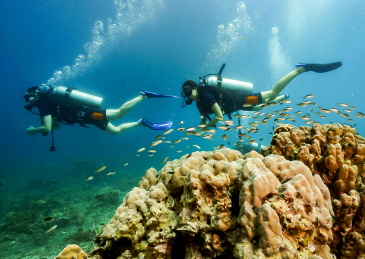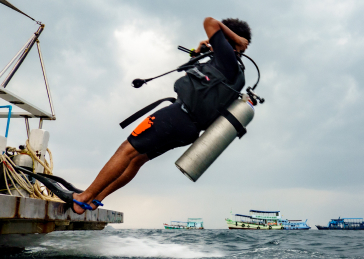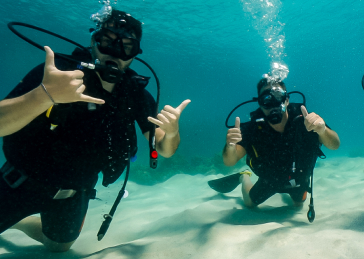Modified 9th June 2025
Divas del buceo: Guía para mujeres en formación de divemaster en Koh Tao
Becoming a divemaster represents one of the most empowering career transitions available to women in the adventure sports industry. The path from recreational diver to dive professional requires dedication, skill development, and the right training environment. Koh Tao has emerged as the premier destination for women seeking divemaster certification, offering world-class training facilities, supportive communities, and unparalleled opportunities for professional growth in the diving industry.
This comprehensive guide examines every aspect of women pursuing divemaster training on Koh Tao, from overcoming unique challenges to building successful careers underwater. Whether you’re considering this life-changing career move or already planning your journey to Koh Tao, understanding what lies ahead will help you prepare for success.
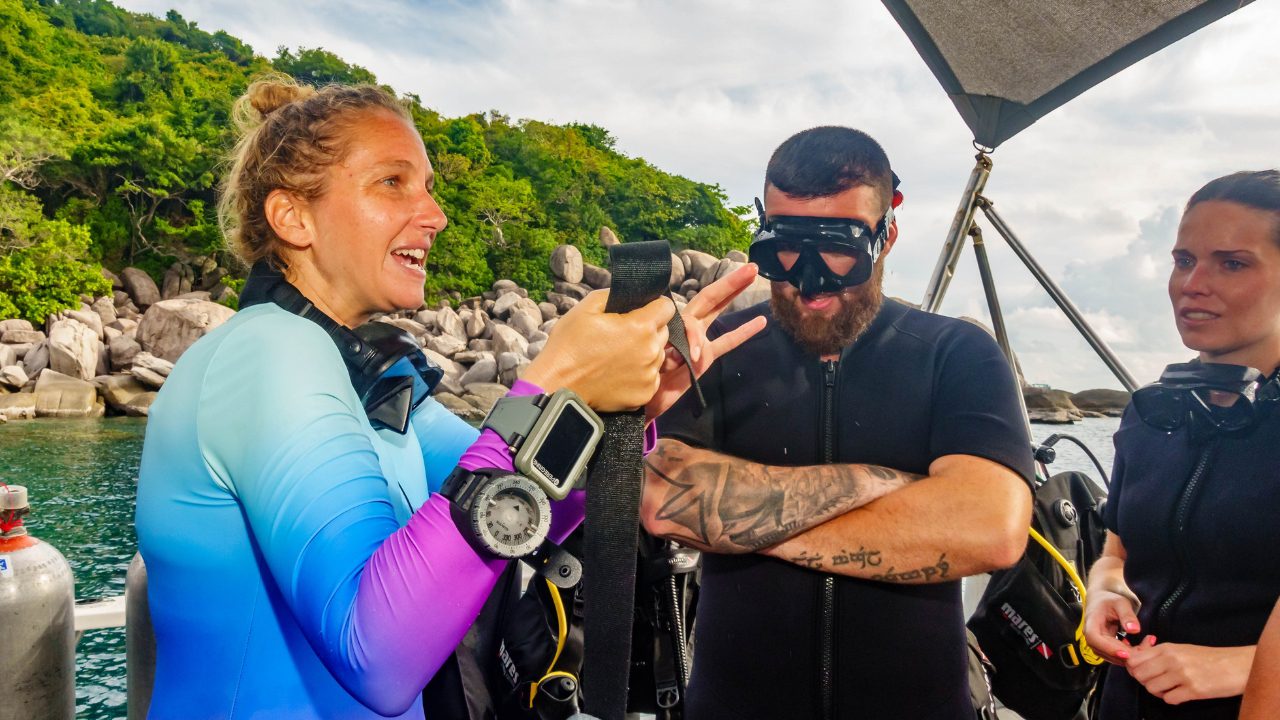
Essential Qualities for Women Divemasters
Success as a female divemaster depends on developing specific qualities that enable effective underwater leadership. These characteristics can be cultivated through training and experience, making divemaster certification accessible to women from all backgrounds.
Divemaster Training Pathway
Complete Training Progression
The divemaster journey follows a structured progression designed to build competency gradually while ensuring safety standards.
Study dive physics, physiology, equipment, and decompression theory through comprehensive coursework.
Perfect buoyancy control, rescue techniques, and demonstration-quality diving skills.
Learn group management, dive planning, briefing techniques, and problem-solving skills.
Assist with courses, lead certified divers, and gain real-world experience under supervision.
Demonstrate competency through written exams, practical evaluations, and leadership assessments.
Achieve professional divemaster status and begin working independently in the diving industry.
Challenges and Solutions for Women
- Equipment Fit: Standard gear designed for male body types
- Physical Strength: Managing heavy tanks and equipment
- Gender Bias: Overcoming stereotypes in male-dominated industry
- Safety Concerns: Solo travel and accommodation worries
- Confidence Building: Developing leadership authority
- Custom Gear: Women-specific BCDs, wetsuits, and equipment sizing
- Technique Focus: Proper lifting mechanics and leverage over strength
- Skill Excellence: Prove competency through superior performance
- Community Support: Connect with other female professionals
- Mentorship: Learn from experienced female divemasters
Investment Breakdown for Divemaster Training
Complete Financial Planning Guide
Understanding the total investment helps women plan financially for their divemaster journey on Koh Tao.
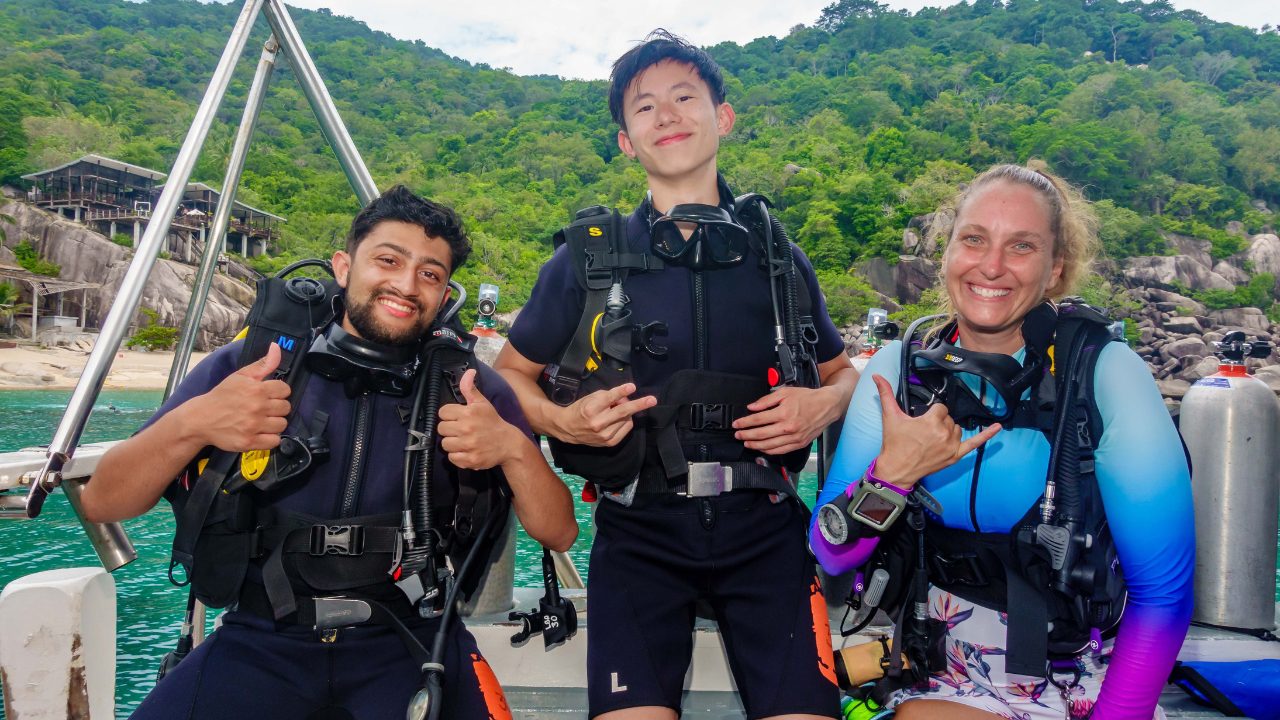
Essential Gear for Women Divemasters
Women-Specific Equipment Considerations
Proper gear fit significantly impacts performance and comfort during training and professional work.
Career Opportunities in Koh Tao
Female divemasters in Koh Tao enjoy diverse career paths within the thriving diving industry. The island’s reputation as a diving education hub creates numerous opportunities for professional growth and specialization.
Professional Roles Available
- Course Assistant: Support dive instructors during Open Water and Advanced courses
- Fun Dive Guide: Lead certified divers on recreational diving excursions to Koh Tao’s top dive sites
- Specialty Instructor: Teach specialized courses like night diving or marine biology
- Boat Crew: Manage dive operations and safety on dive boats
- Shop Operations: Equipment sales, rental management, and customer service
- Conservation Projects: Lead marine protection and research initiatives
Building Your Professional Network
Koh Tao’s diving community actively supports female professionals through mentorship programs, professional development opportunities, and collaborative projects. Many successful female divemasters have built thriving careers by starting their journey on this supportive island.
Ready to transform your passion for diving into a professional career? La Bombona Diving offers comprehensive divemaster training specifically designed to support women in achieving their diving career goals.
Our experienced team understands the unique challenges and opportunities facing women in the diving industry, providing personalized guidance throughout your professional development journey.
- Experienced female instructors and mentors
- Comprehensive 60-day divemaster program
- Unlimited ocean diving experience
- Small group training for personalized attention
- Job placement assistance after certification
- Modern safety equipment and training materials
- Supportive community of international divers
- Flexible payment plans available
Divemaster Course: ฿40,000 – Complete professional training program
Begin Your Divemaster Training60-day program | Unlimited ocean diving | International certification | Career support included
Preguntas frecuentes
Bucea con LBD: tu puerta a la exploración submarina
Tanto si eres un principiante curioso como un profesional experimentado, nuestra escuela es tu portal a las maravillas del submarinismo. Únete a nosotros en el mundo bajo las olas.
¿LISTO PARA EMPEZAR?
Consulta nuestros cursos de buceo en Koh Tao
